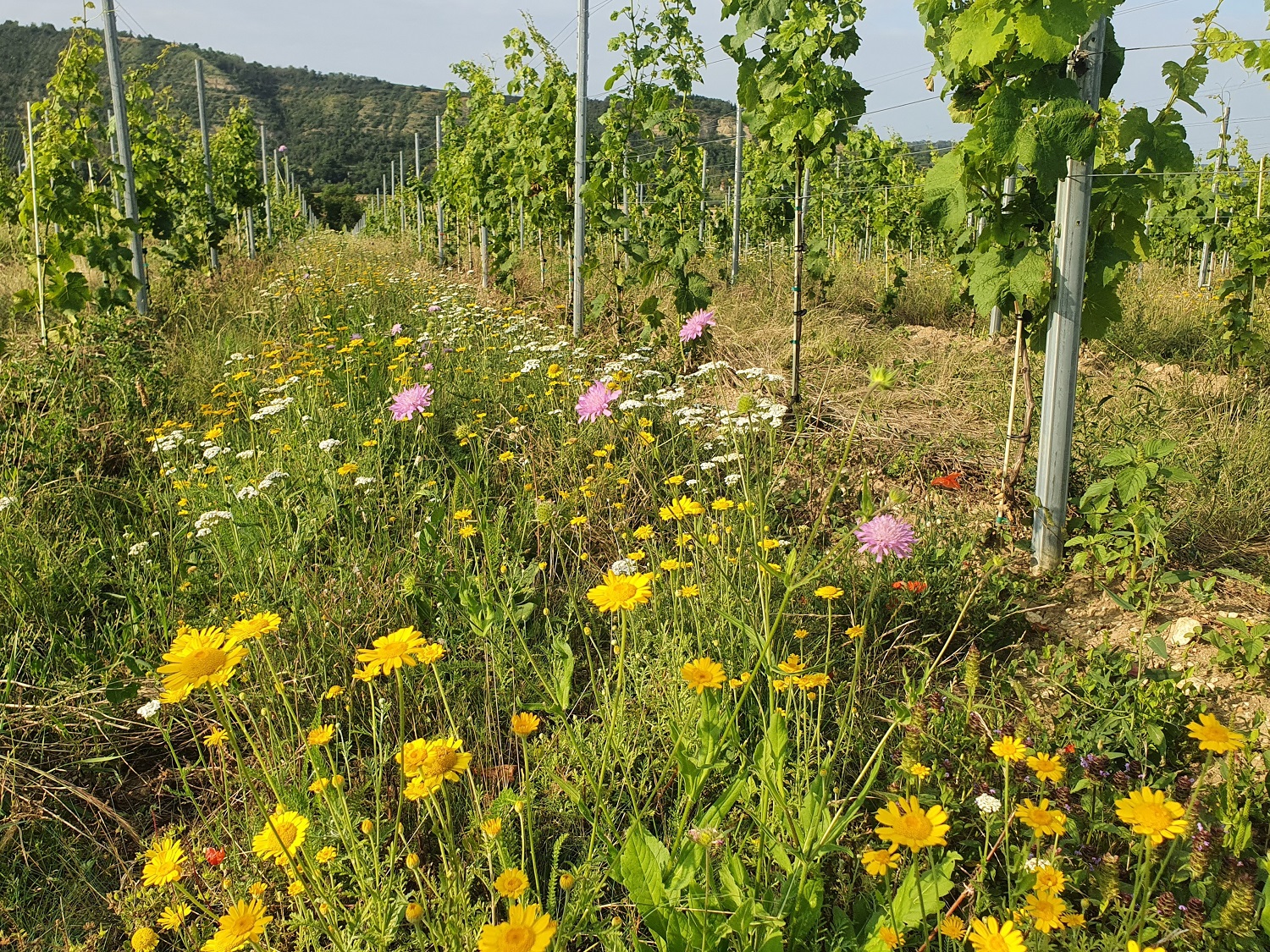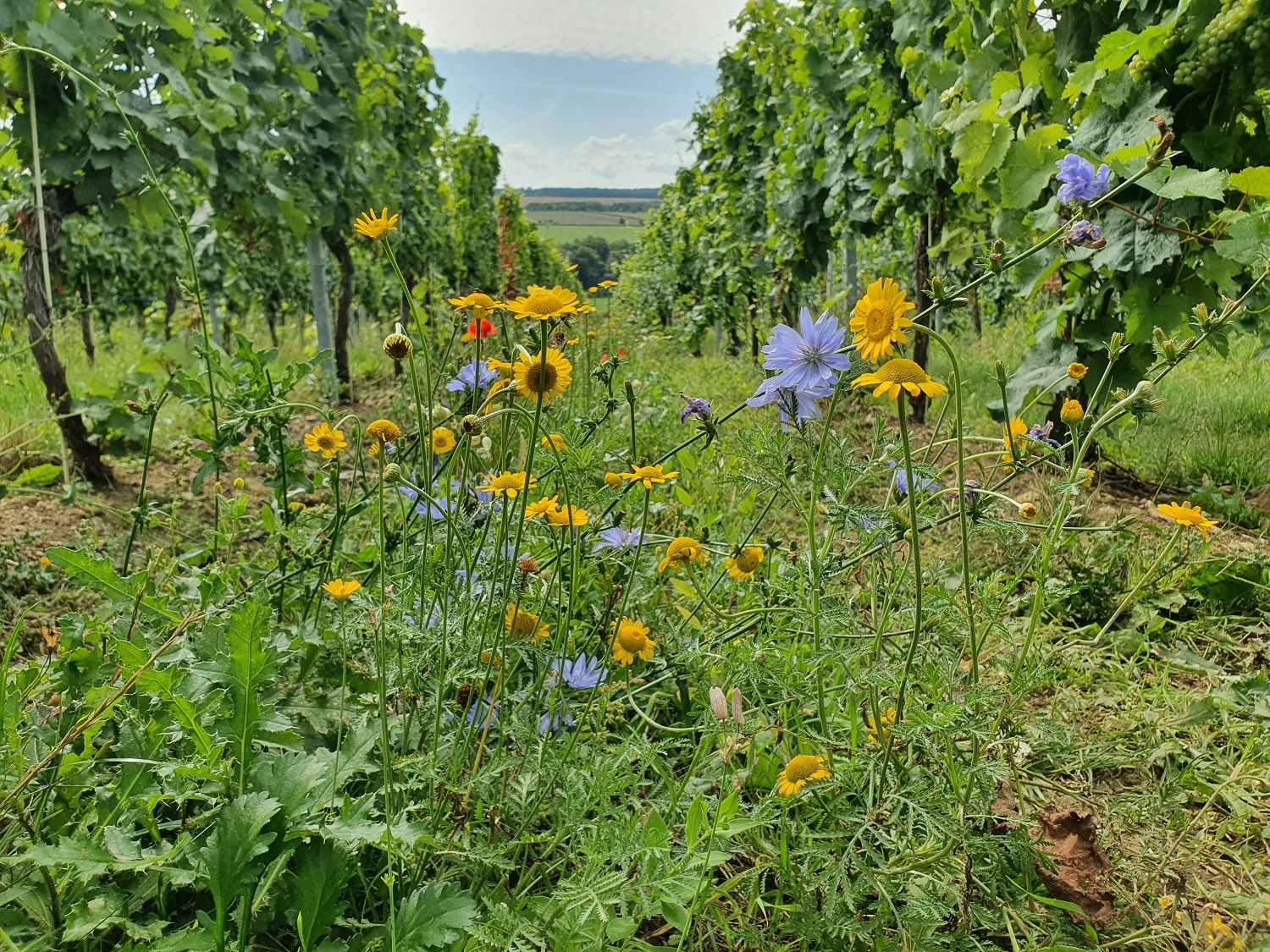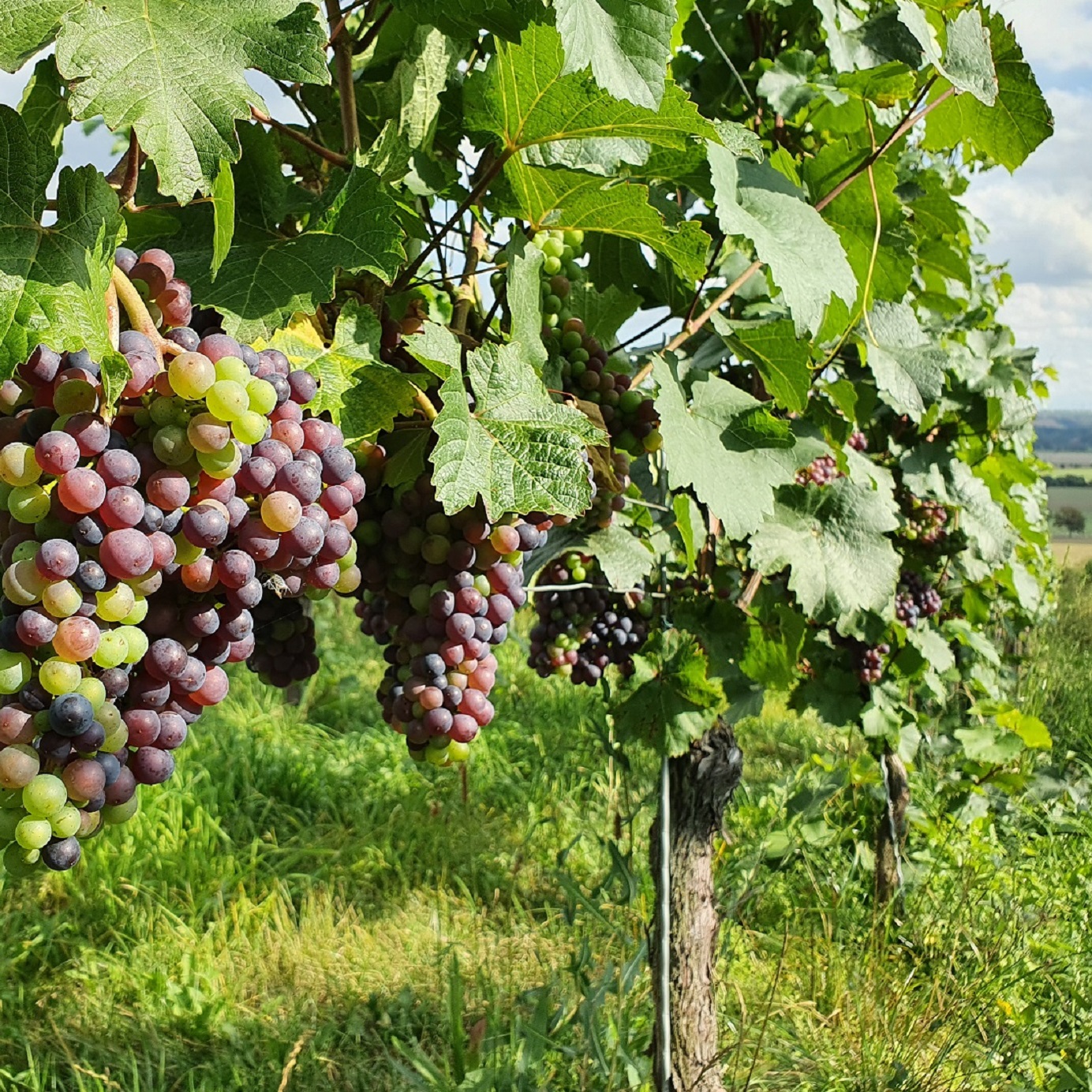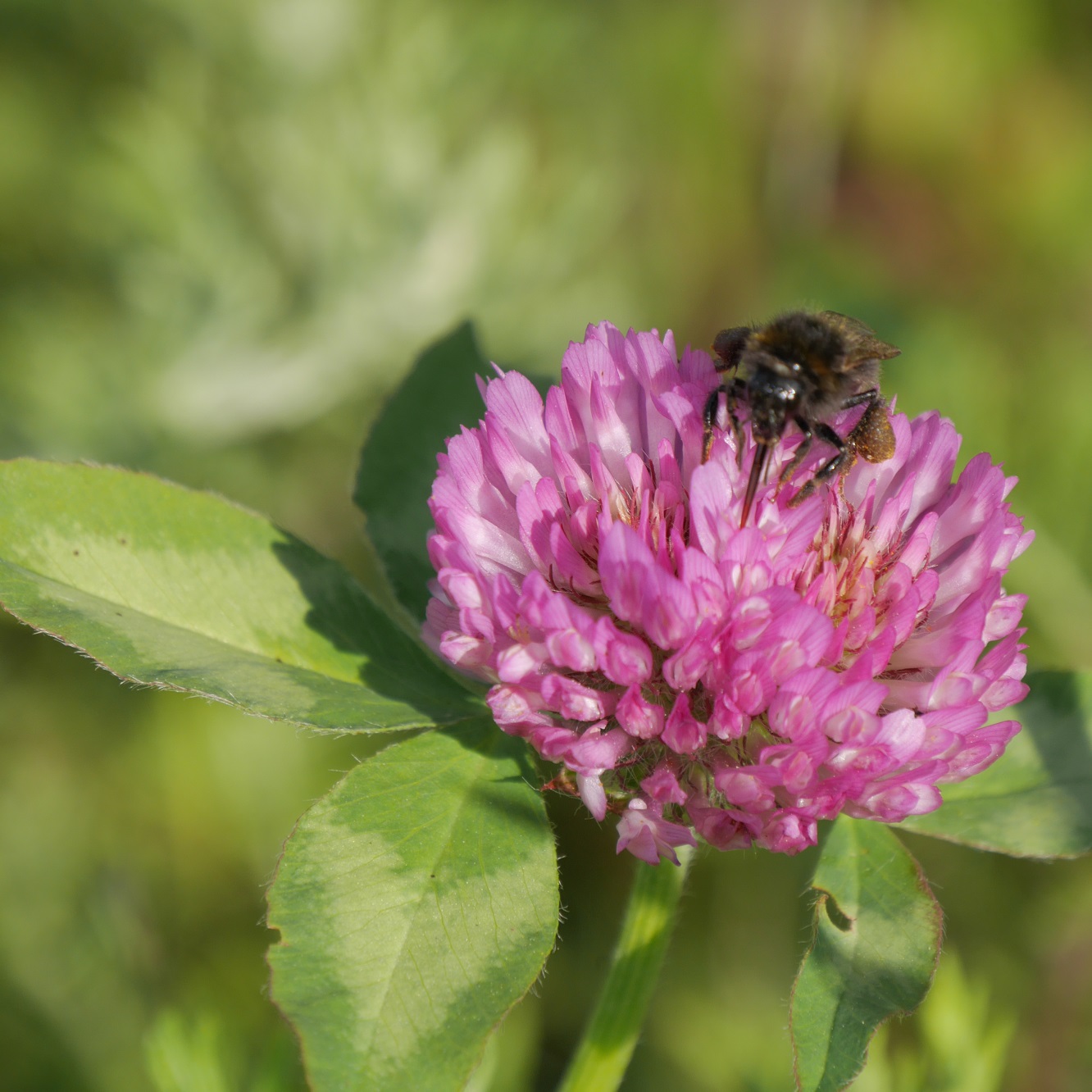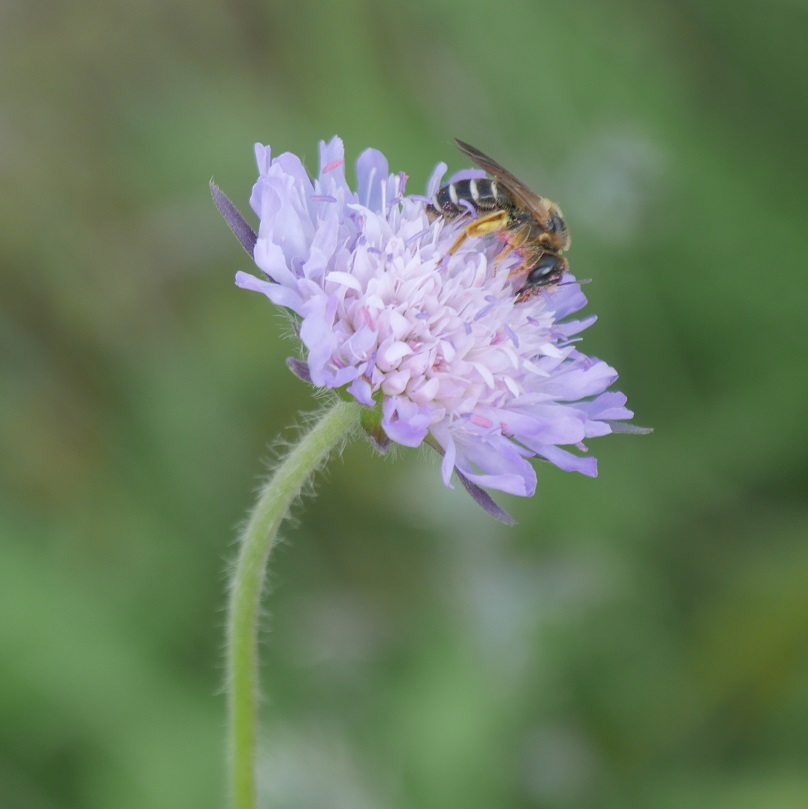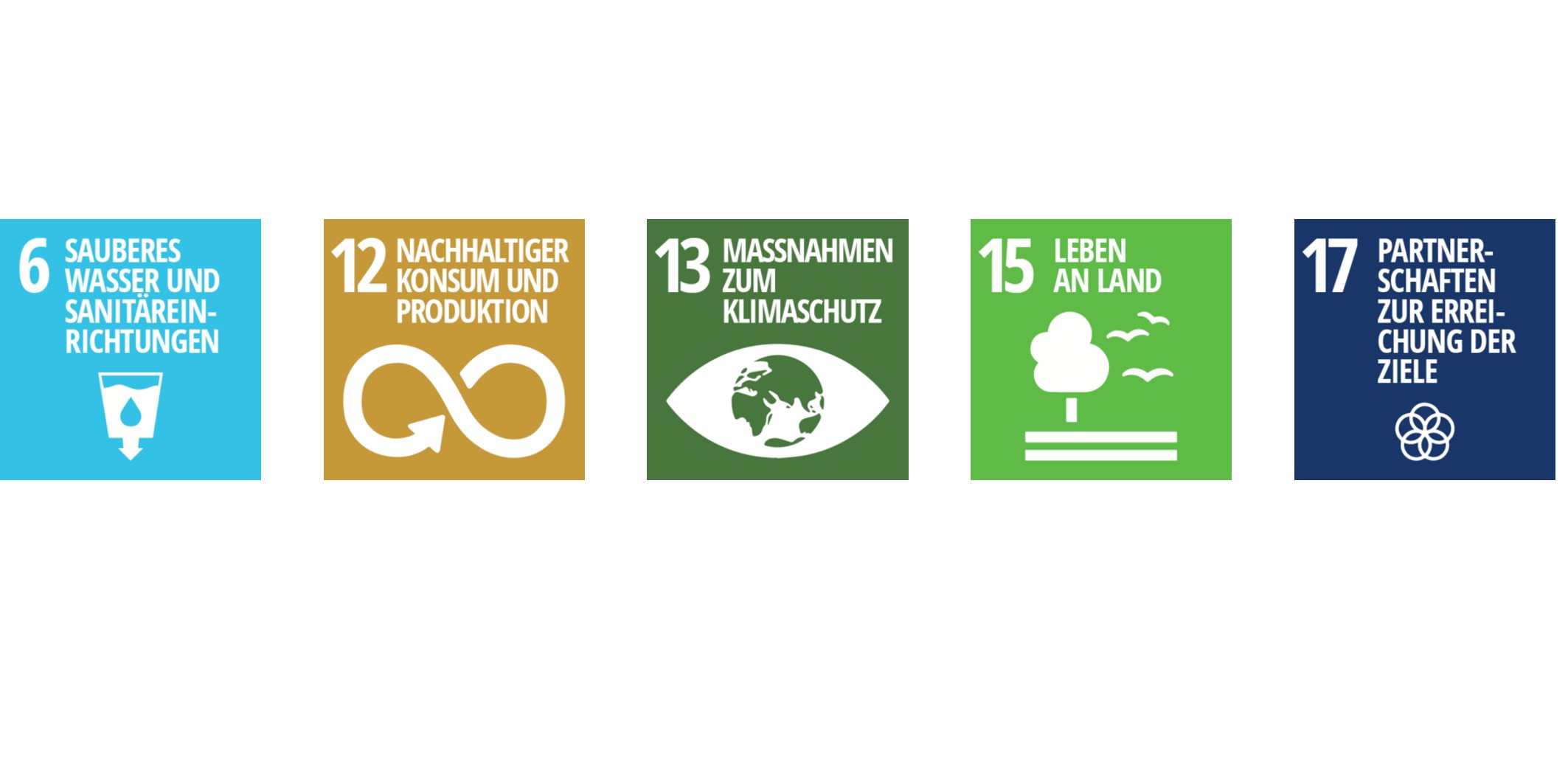Motivation of the project
Motivation of the project
Viticulture is an intensive form of agriculture that will be strongly affected by the effects of climate change in the near future. An increase in summer droughts, a high risk of erosion by heavy rainfall and the immigration of new pests require innovative solutions. We expect that an ecosystem-based approach, based on a significant increase in native biodiversity and improved vineyard management, will strengthen the capacity of the vineyard ecosystem to cope with natural extremes and make the system more resilient to climate change.
Eight research and practice partners from Austria, France, Germany and Hungary will pool existing knowledge within and outside the project group in order to demonstrate, optimize and disseminate vineyard management practices that are resource-efficient and adapted to climate change. The main objective is to increase native biodiversity in vineyards in order to maximize the associated ecosystem services in terms of pest control, soil biota, humification, erosion control, water retention and greenhouse gas reduction and to safeguard production. Positive effects of increased biodiversity on vine plants and ecosystem services are obvious, but the transfer of knowledge into viticulture practice is not yet complete and will be pursued in the public relations work of the project. Resource-saving methods for climate-related stress reduction in vine plants include resource-efficient fertilization and demand-oriented drip irrigation. Greenhouse gas emissions are reduced by reducing the use of fertilizers and machine crossings. By changing the management practice of the understock vegetation, conventional herbicides are to be replaced in conventionally managed vineyards.
In the project 26 vineyards with a total area of about 35 ha will be converted into biodiversity vineyards, covering a broad geographical and climatic gradient that will allow the project results to be transferred to other wine-growing regions and countries. Different methods of knowledge transfer, aimed at different stakeholder groups, will be used to raise awareness in all project regions as well as in other wine-growing regions of the importance of using climate-adapted and biodiversity-friendly methods, thus effectively transferring the project results into European wine growing practice.
Work package 1: Establishment and effects of biodiversity vineyards
Work package 1: Establishment and effects of biodiversity vineyards
in work package C1, a near-natural vegetation is to be established in vineyard inter-rows by sowing a site-specific, native wild plant mixture from certified, regional seed propagation. We expect positive effects regarding diversity of plant species and wild bees, increase of pest antagonists, reduced soil erosion, higher soil fertility, improved soil structure and water storage capacity. It is expected that the interaction of different effects will increase the resilience of the vineyard ecosystem. Wild bees and pest antagonists are expected to serve as key indicators for a successful conversion to biodiversity vineyards.
Responsible: Anhalt University of Applied Sciences

Köppelberg-Nord vineyard end of May 2021 (sown in autumn 2019) 
Vineyard near Denstedt end of August 2021 (sown autumn 2020) Work package 2: Methods of alternative understory management
Work package 2: Methods of alternative understory management
In work package C2, chemical synthetic herbicide treatments in the area below the vineplants are to be replaced by a more biodiversity-friendly understock management. A comparison of a mechanical treatment, a treatment with acetic acid and with pelargonic acid is planned. The effects of the different measures on the vegetation in the understock area as well as in the alleys and the suitability of the different variants for a settlement of typical vineyard geophytes will be assessed.
Responsible: Agricultural Research and Education Centre Raumberg-Gumpenstein
Work package 3: Alternative fertilization methods
Work package 3: Alternative fertilization methods
In work package C3 alternatives to full area fertilization are to be tested. On the one hand, a comparison with an under-floor placement directly at the vine rows is planned and on the other hand, a comparison between mineral and organic fertilization. The effects of the different fertilization variants on vegetation, soil, vines and economic efficiency will be quantified.
Responsible: State Vinery Kloster Pforta
Work package 4: Resource efficient irrigation
Work package 4: Resource efficient irrigation
Work package C4 focuses on resource-efficient irrigation with the aim of reducing the drought-related stress of vines. In a pilot trial, the effects of surface and underground drip irrigation on the vines will be compared. For this purpose, investigations of the leaf water potential, chlorophyll content, harvest quantity and grape quality are planned. In addition, possible negative effects of irrigation on above and below ground biodiversity will be evaluated.
Responsible: Avignon University
Work package 5: Cross-continental assessment of ecosystem services in vineyards
Work package 5: Cross-continental assessment of ecosystem services in vineyards
Work package C5 includes a detailed assessment of ecosystem services in vineyards, a cost-benefit analysis and a transnational review of project indicators, which should lead to an overall assessment of the project impacts with special emphasis on adaptation to climate change.
Responsible: Landgesellschaft Sachsen-Anhalt



Lead partner
Landgesellschaft Sachsen-Anhalt: Lydia Hohlstein (Project coordinator, Hohlstein.L@lgsa.de), Johanna Weinreiter (Weinreiter.J@lgsa.de)
Project partner
· State Vinery Kloster Pforta: Philipp Kollmar (kollmar@kloster-pforta.de), Jens Eckner (eckner@kloster-pforta.de)
· Anhalt University of Applied Sciences: Prof. Dr. Sabine Tischew, Prof. Dr. Anita Kirmer, Dr. Daniel Elias, Lea Schubert (M.Sc.), Dipl.-Ing. (FH) Hendrik Teubert
· Avignon Université, Institut Méditerranéen de Biodiversité et d’Ecologie: Prof. Dr. Armin Bischoff, Dr. Olivier Blight
· Union de Cooperatives Agricoles des Vignerons des cotes du Luberon - cellier de Marrenon
· Agricultural Research and Education Centre Raumberg-Gumpenstein, Dr. Bernhard Krautzer, Dr. Wilhelm Graiss
· State Vinery Silberberg, Sabrina Dreisiebner-Lanz
· Hungarian Research Institute of Organic Agriculture (ÖMKI), Dr. Dóra Drexler
Cooperation partner
· Ministerium für Wirtschaft, Tourismus, Landwirtschaft und Forsten des Landes Sachsen-Anhalt: Frank Lolies
· Landesanstalt für Landwirtschaft und Gartenbau Sachsen-Anhalt, Dr. Matthias Schrödter
· University of Debrecen, Department of Ecology, Prof. Dr. Béla Tóthmérész, Prof. Dr. Peter Török, Dr. Tamás Miglécz
Funded by: EU-Förderprogramm für Klima und Umwelt, LIFE
Project number: LIFE19 CCA/DE/001224 LIFE VineAdapt
Duration: 7/2020 - 6/2025
Project website: www.life-vineadapt.eu




